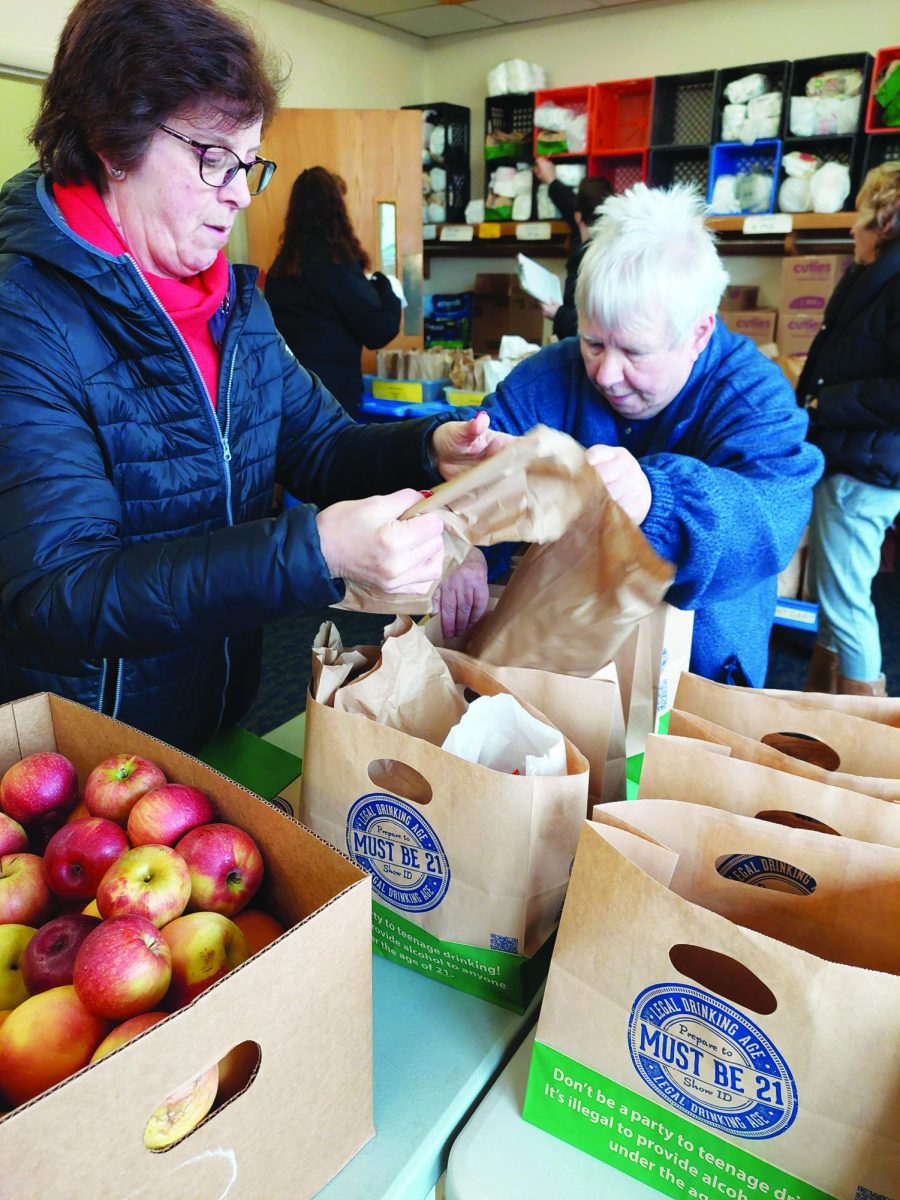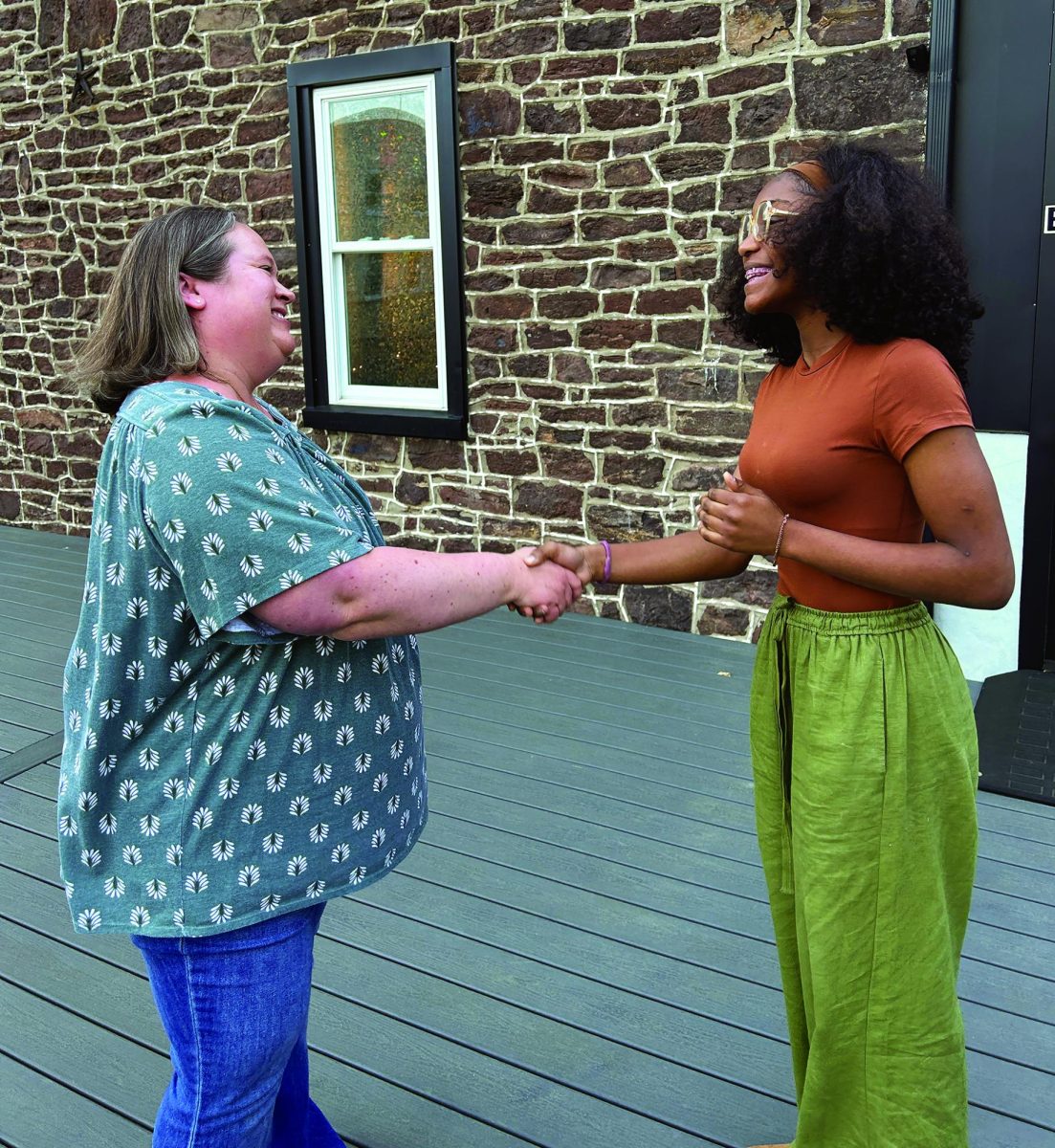With the help of volunteers, Emmanuel Lutheran Church gives back to the community through its E-meal program, donating over 500,000 meals to struggling families in the last four years.
The E-meal program began on March 16 of 2020, just a few days after the announcement of businesses and schools shutting down due to the Coronavirus outbreak.
According to Pastor John Heidgerd, the E-meal program started from a paper bag to avoid spreading germs to families.
“We came up with this very simple idea of getting food that was pre-packaged, putting it in a paper bag and handing it out our back door in a contactless manner,” John said.
On March 16, 2020, the church handed out its first E-meal.
“Within a week, we got started. The first couple of days we handed out maybe 30 meals each day, but then word got around and it took off,” Heidgerd said, “During the week, the paper bag with food in it is still the item that we distribute every day.”
Families who receive an E-meal are given a variety of options when it comes to what food that is given to them, including the type of main meal that comes in their lunch bag.
“Base bags, [they] call them,” volunteer Julie Zettlemoyer said, “are a drink or a snack. When it’s time to get the lunches together, we put in our tuna, soups or oatmeal. And then those bags, like I said, there’s a main item, a drink, a snack and usually a fresh piece of fruit.”
Along with bagged lunches, the church distributes a box with a variety of goods to each car that pulls up.
According to Zettlemoyer, boxes can contain items such as eggs, a gallon of milk and a box of pasta, however, sometimes items in the boxes can vary throughout the week.
For many people, the E-meal program brings a sense of relief to them because they are a no-questions-asked program.
“We don’t ask any questions. So there’s no documentation that people have to provide to get help. They just show up and they ask for help and they get it,” Heidgerd said.
For some, families who are picking up meals may not directly be picking up for themselves, rather a neighbor or a grandparent in need.
According to E-meal organizer Ann Marie Heidgerd, there can be several reasons for someone to be picking up a meal.
“I know that there are people picking up for other families because they can’t get out,” Ann Marie said. “I’ve noticed in some cases, one person has a car but there are three or four families within that car because that one person is able to drive.”
Volunteer Jane Vogel shared a similar outlook.
Vogel says that families should not have to show proof that “people are hungry” because the number continues to rise each day with “more and more hungry people.”
“Especially the moms that come through with the kids in the car. It’s like, these kids are hungry,” Vogel said.
According to volunteer Derek Toro Paz, the E-meal program has given many families a sense of hope. “I can sense it from their vibe,” Toro Paz said. “You can sense it from them, and the faces that [they] make, the words they speak. They’re very grateful. They have that sense of gratitude.”
For Heidgerd, the E-meal program is to help those that are in need because the amount of people in need is “greater than anyone will ever realize.”
“I’m proud of the fact that we’ve been able to serve this need but I think it’s made the community much more aware that there are people in need that live right next door to them,” Heidgerd said.
E-meal program ‘driving out’ food insecurity
In order to raise awareness for food insecurity in the community, Emmanuel Lutheran Church donated packaged meals to those in need through the E-meal program. The E-meal program has donated over half a million meals.
Boxing it up…To manage the Saturday rush, E-meal organizer Ann Marie Heidgerd (left) and volunteer Janet Shepherd pack lunch bags for families on January 6. Emmanuel Lutheran Church started the E-meal program in 2020 and has given out over 500,000 meals to people in need.
2
More to Discover
About the Contributor

Julia Sipes, Features Editor






